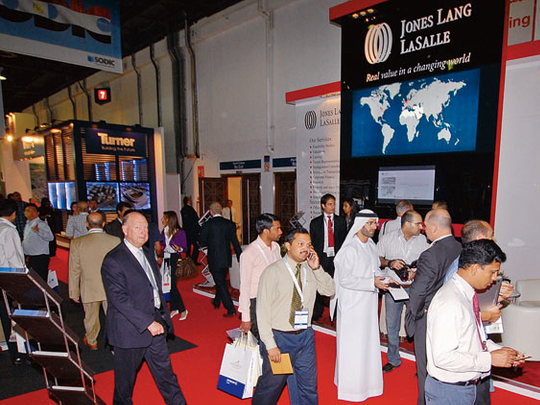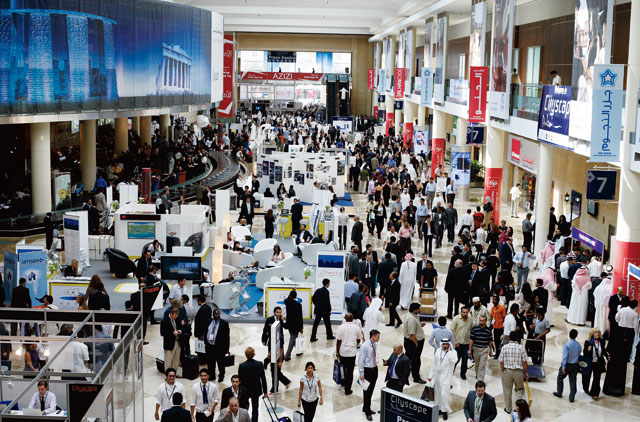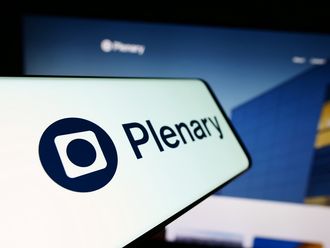
Cityscape Dubai, as Cityscape Global was known previously, has come a long way since its first edition in 2002. The premier real-estate event has been witness to the phenomenal growth of Dubai's real-estate market and the challenges brought about by the global downturn. While looking for companies that have made an impression with their consistent participation at the exhibition, we came across Jones Lang LaSalle (JLL), the global real-estate services firm, a loyal participant from 2004 onwards.
Being an integral part of Cityscape for such a long time, JLL is in a position to look at the event in the light of the market transformation. "Cityscape [today] is about building long-term relationships, and not about making direct sales. When market conditions are depressed, developing and maturing relationships with clients, suppliers and other market participants becomes even more critical," says Bansrelal Goshichand, marketing manager at JLL.
Things were not much different when the first Cityscape was held in Dubai in 2002. It was all about an integrated approach to planned developments where all involved would have the opportunity to know each other and work together. The show created much interest in the industry, considering that the property sector in the UAE was at that time moving towards a certain degree of sophistication. Cityscape became a binding force and, two years later, this is what made JLL participate in the event. "Cityscape was the only platform which brought real-estate experts, developers, investors and tenants all together at one location," recalls Bansrelal.
Serious enquiries
With property-related companies coming together under one roof, it became much easier for investors to seek out what's available in the market. The result was
a spike in the number of enquiries. JLL experienced this in 2004, in its first year of participation, which helped bolster its business-development prospects.
"While there is no way of tracking deals directly to our attendance at Cityscape, we have found that participation does generate a large number of serious enquiries. We received more than 100 leads and contacts from our attendance at the Global Cityscape in Dubai in 2009. The extent to which these leads resulted in deals or direct business to JLL is not possible to quantify, but generating such leads is clearly an important aspect of business development," says Bansrelal.
Having seen the early years of Cityscape when activity was considerably low key, it was a dramatic change that was seen when the market peaked in 2008. For JLL, the mood was "rather schizophrenic". "While many of the presentations in the conference were addressing the impact of the global financial crisis on Mena [Middle East and North Africa] real-estate markets, developers in the exhibition continued to unveil larger and more ambitious projects. This shows the time lag often associated with real-estate markets and the difficulty of adjusting large multi-year construction projects to volatile market conditions," says Bansrelal.
The sentiment towards the Dubai real-estate market changed dramatically between the 2008 and 2009 events. According to Bansrelal, the change in sentiment is reflected in Jones Lang LaSalle's Real Estate Investor Sentiment Index, which shows the impact of the global financial crisis of 2008-09 on Dubai and that "many occupiers and investors subsequently switched their attention to other markets in the Mena region, notably Saudi Arabia."
Shifting focus
There was greater emphasis on regional and global markets from 2009 onwards, unlike in previous years when there was evidently a more localised focus on the Dubai market. At this point, Cityscape also became much more business-to-business (B2B) orientated compared with the events in 2007 and 2008 in which all the effort was concentrated on sales of real estate to investors and speculators. Cityscape has now turned into a clear indicator of where the market currently stands on a comparative scale in the region. "Cityscape Global does not affect market conditions, it reflects them," says Craig Plumb, head of research, Mena at JLL. "It provides real-estate players from Dubai with the opportunity to assess how the city compares to other markets across the GCC and the broader Mena region."
The Dubai market is suffering from excess supply, causing prices to decline to more competitive levels. "Given that much of the demand required to fill this excess supply will come from outside the emirate, Cityscape Global offers local developers the opportunity to demonstrate the potential attractions of investing in the city at these more competitive price levels." JLL's latest survey of real-estate investor sentiment shows that most investment in Dubai is coming from ‘backyard investors' from within the Mena region. "Given the on-going instability of many other markets across the region, Cityscape Global offers the opportunity for Dubai to showcase its attraction as a relatively stable and well-regulated real-estate investment environment, supported by completed physical and social infrastructure," says Craig.













